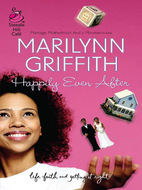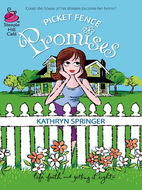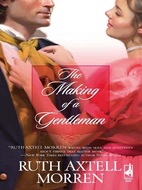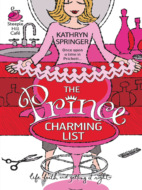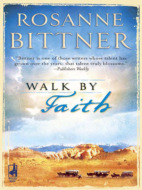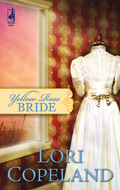Kitap dosya olarak indirilemez ancak uygulamamız üzerinden veya online olarak web sitemizden okunabilir.
Kitabı oku: «Carry The Light»
Carry the Light
Delia Parr
MILLS & BOON
Before you start reading, why not sign up?
Thank you for downloading this Mills & Boon book. If you want to hear about exclusive discounts, special offers and competitions, sign up to our email newsletter today!
Or simply visit
Mills & Boon emails are completely free to receive and you can unsubscribe at any time via the link in any email we send you.
Dedicated to
the memory of
Gizmo Jane:
The Panda Pup,
The Cheese Dog
and
Friend to All
Contents
Chapter One
Chapter Two
Chapter Three
Chapter Four
Chapter Five
Chapter Six
Chapter Seven
Chapter Eight
Chapter Nine
Chapter Ten
Chapter Eleven
Chapter Twelve
Chapter Thirteen
Chapter Fourteen
Chapter Fifteen
Chapter Sixteen
Chapter Seventeen
Chapter Eighteen
Chapter Nineteen
Chapter Twenty
Chapter Twenty-One
Chapter Twenty-Two
Chapter Twenty-Three
Chapter Twenty-Four
Chapter Twenty-Five
Chapter Twenty-Six
Chapter Twenty-Seven
Chapter Twenty-Eight
Chapter Twenty-Nine
Chapter Thirty
Epilogue
Chapter One
E scape was only a few steps away.
With that thought, Ellie Waters maneuvered through the maze of high school students reluctantly edging to their next period class, slipped inside her office and shut the door behind her. The room was not much more than a supersized closet, but it was her own space and she loved every crowded inch of it.
She made her way past two cartons of new textbooks sent by publishers to be considered for adoption, eased into the wooden chair at her desk, leaned back, closed her eyes and took a deep breath. Ten quiet minutes; that was all she needed to regroup and replenish her sagging energy.
It was only noon, but she had already taught four classes, met with her supervisor for her annual performance review and had a parent conference. By hiding here and managing the paperwork that was only a part of her duties as the language-arts department head at Welleswood High School, she might be able to finish the school day in peace. In quiet. And without interruption. She sighed, fully hopeful her plan would work.
Until the telephone rang.
She opened one eye, stared at the offending instrument and wondered if there was an alarm attached under her chair that alerted the outside world that she finally had some downtime. When the telephone continued to ring, she opened her other eye, resisted the urge to answer and let out another sigh.
Just once, she would love to have ten minutes to unwind after changing hats from classroom teacher to department head. She had been the language-arts department head here for seven years now, but she had been teaching here for over thirty-five years. From experience, however, she knew that the pace of the school year was rapidly heating up now that March had arrived, and peace and quiet would be very precious commodities.
At the moment, she didn’t want to think about the school-board election next month or whether the community would vote to accept or reject next year’s budget. Nor did she want to think about the pressure she would soon be under from parents eager to make sure their children were recommended for advanced classes next year. But she did have to think about parent conferences scheduled for that evening, which made for an extra-long day today and an extra-tired day tomorrow, a Friday. Fortunately, she had the weekend to recover, and she looked forward to spending two very quiet, very peaceful days at home, grading the mini research papers she had collected this week.
The telephone continued to ring. Apparently, the caller was not giving up, but Ellie, just as determined to finish her paperwork before the parent conferences tonight, was letting the call go to voice mail. This year’s senior awards for the department had to be reviewed and organized for her supervisor, and if she didn’t make a plan to ration the department’s supplies, they would run out long before June.
When the telephone finally stopped ringing, then started up again less than a minute later, she let out one final sigh, gave in and reached for the receiver. “No peace today,” she muttered, and glanced down at the bottom desk drawer, where she kept a stash of candy. Not every telephone call was a problem or an emergency, but she was ready for either.
When she finally answered the telephone and heard her mother’s voice, she opened the drawer. She made a mental note to replenish her stock, and took out three dark-chocolate kisses. “Yes, Mother, I have time to talk now,” she said, unwrapping a kiss.
“I left three messages for you earlier, and one just now. You never called me back,” Rose Hutchinson grumbled to her daughter.
“I’m sorry. I’ve been teaching classes and I had meetings all morning. I haven’t had time to check my messages. Why are you whispering?” she asked, trying to divert her mother’s attention away from her criticisms. She slipped the chocolate kiss into her mouth and let it begin to melt slowly against the inside of her cheek.
“I’m talking as loud as I can manage,” her mother replied. “I’m sick, which you would have known if you’d bothered to call me today.”
Ellie straightened her back and swallowed the last of the chocolate kiss. “But I just talked to you last night. You were fine then. What—”
“I know I was fine. Until this morning. I feel awful. My neck hurts and my jaw hurts and my chest hurts. I called Dr. Stafford’s office and told the receptionist that I think I have the flu. He can see me this afternoon at four o’clock, but I just don’t think I can make it there by myself. I’m feeling too weak. I need you to take me,” she whined.
She went on before Ellie could respond. “Unless you’re too busy. Then I’ll have to take a cab. I’m sure the driver won’t mind helping me into the cab or waiting for me while I’m at the doctor’s office. Phyllis’s daughter always takes her to the doctor’s for her appointments, but then, her daughter has the sense to not be working anymore. She’s retired now, you know, so she can spend a lot of time with her mother, not that you would consider retiring—”
“I’ll take you. Of course, I’ll take you,” Ellie insisted, interrupting before she was compared unfavorably, again, to her mother’s friend’s near-perfect daughter.
Resigned, Ellie gave up any idea of taking a catnap this afternoon between the end of the school day at three and the start of parent conferences at six-thirty. Despite her contentious relationship with her mother, she did not resent her responsibilities as an only child. Taking her eighty-five-year-old mother to the doctor had become a frequent task in the past year.
Assuming Dr. Stafford saw her mother on time, which he usually did, and assuming her mother prolonged her appointment for a good fifteen minutes by arguing with the doctor, which she usually did, Ellie would be able to take her mother home, pick up whatever prescription she might need at the pharmacy, bring it back to her mother’s home, and still be on time for parent conferences tonight.
Unfortunately, dinner did not fit into this scheme, which meant Ellie would have to rely on the teachers’ traditional cookie tray for sustenance tonight—if someone in the administration had remembered to order it.
“I’ll probably need you to stop at the store for ginger ale, too. I’ll have to drink lots of clear fluids if I have the flu,” her mother said.
“I took you for your flu shot, Mother, remember?” Ellie asked, rather than point out that flu season was nearly over.
“Certainly I remember. I’m old, Ellie, but I’m not senile. And just because I had a flu shot doesn’t mean I don’t have the flu. Last year, Alice Williams got the flu shot and she came down with the flu, if you’ll recall.”
“I can pick you up at quarter to four,” Ellie replied choosing not to continue the argument. “Is that all right or do you need me to come over now?” she asked, with one eye on the mound of paperwork and the other on those two chocolate kisses sitting on top of her desk.
“Quarter to four is fine, but only if you’re on time.”
Ellie pursed her lips, cradled the telephone against her shoulder and slowly unwrapped another kiss. “I’ll be on time.”
“Well, I certainly can’t do anything about it if you’re not. With all the responsibilities you’ve had at school for the past umpteen years, I can’t imagine how you’ve survived without learning to be more punctual. Unless it’s just because I’m not important enough—”
“I’ll be there. Quarter to four,” Ellie interrupted again. She waited until she heard her mother hang up, then popped the kiss into her mouth.
Enduring her mother’s criticism was nothing new for Ellie. She honestly could not remember a single moment in all of her sixty years when she had truly pleased her mother. Rose Hutchinson had already lived a long and full life, and Ellie reminded herself that each day her mother was here was a gift. Each day, however, was also one more day for Ellie to be reminded again of how she had disappointed the one person who mattered most: her mother.
She bowed her head and knitted her hands together. She prayed for patience, for strength and guidance, so that she might find the path that would lead her to discovering the love and acceptance she still desperately wanted from her mother.
At four o’clock, Ellie and her mother were sitting in Dr. Stafford’s office. Dressed conservatively in black slacks, a black top and a plaid blazer, Ellie was also still wearing the sensible, lace-up oxfords she wore to school every day. In contrast, her mother had chosen to wear a bright aqua dress, calf-length and ultra-feminine, which did little to complement her full figure, along with pumps, a matching handbag and costume jewelry that included a large turquoise brooch, bracelet and dangling earrings.
Half an hour later, after Dr. Stafford had examined Rose Hutchinson and rendered a tentative diagnosis, Ellie fervently wished that her mother indeed had the flu. “Are you sure?” she asked the doctor. “Mother has absolutely no history of heart trouble, and her cholesterol level has been dropping since she started her new medication. When I talked to her earlier today, she wasn’t complaining about pain in her chest or arm. Aren’t those the signs that would have told us—”
“Don’t argue with the man,” her mother interrupted, as if she reserved that right exclusively for herself. “He’s the doctor. If he thinks I had a heart attack and I need to go to the hospital, then it’s best if I go—even though I’m not convinced he’s right, mind you. If you’re worried about getting back to school in time for those conferences, you can drop me off at the emergency room. Or I can always go by ambulance, can’t I, Dr. Stafford?”
“I do think getting you to the hospital as soon as possible would be best,” he said firmly, repeating his earlier recommendation, “although I don’t think it’s necessary to call for an ambulance.”
“I’ll drive her to the hospital right away and stay with her,” Ellie replied, clarifying her intentions.
“Good. I’ll call ahead so they’re waiting for you,” the doctor said. “Now remember, I’m sending you to the hospital as a precaution, Mrs. Hutchinson. I don’t want you or your daughter to jump to conclusions or to panic. The only way we’ll know for certain if you suffered a mild heart attack earlier today is to get you checked out thoroughly.” He looked at Ellie. “Not everyone has the classic symptoms you described, especially women, but based on what you’ve told me and what I’ve observed during my examination, I think we should be cautious and let the hospital run a few tests.”
Ellie watched as he and her mother bantered back and forth for a few minutes. After treating her for nearly thirty years, Dr. Stafford knew exactly how to handle Rose Hutchinson, a skill Ellie sorely needed.
He smiled at one of her mother’s heated rejoinders. “I suppose it’s possible you’ve got the flu. Let’s find out, shall we? If you’re right and I’m wrong, I’ll make it up to you,” he promised.
Her mother’s eyes lit up. “How?”
“I’ll make another donation to the Shawl Ministry at church.”
“We do need the wool,” her mother replied, and looked at Ellie for confirmation.
Ellie nodded. Working together with her mother and other volunteers, knitting shawls and afghans for members of the congregation who were celebrating special occasions or needed consolation during difficult times was one way Ellie tried to fit volunteer work into her hectic schedule—and spend time with her mother, too. Unfortunately, with a full-time job and tons of paperwork at night, she had not been as active as she would have liked, yet another bone of contention between her and her mother.
Her mother let out a long sigh. “All right. I’ll go to the hospital, but you need to write out your check first, Doctor Stafford. I’ll take it with me.”
Chuckling, the doctor left the room to make arrangements for them to be met at Tilton General Hospital. While he was gone, Ellie used her cell phone to call the school. Once the automated system picked up, she tapped in her supervisor’s extension, left a voice mail message and then left another message for her principal, telling both her colleagues that she would not be at parent conferences tonight after all.
As she finished, the doctor returned and handed her an envelope. “Give this to the emergency-room physician and be sure to have Dr. Marks paged. He’s expecting your mother. He’s an excellent cardiologist, and I’m certain he’ll be able to help her.”
Ellie tucked the envelope into her purse and helped her mother to her feet. When she looked into her mother’s eyes, she was surprised to see the same fear that was making her own heart beat a little faster. Apparently, despite her show of bravado, her mother was not quite as confident she had the flu as she had let on. “Everything is going to be fine,” Ellie whispered, and prayed she was right.
Life was good. Life was grand. Especially when life was filled with one of God’s finest blessings: chocolate!
Humming softly, Charlene Butler tied a bright pink bow on the gift package she planned to deliver tonight after closing her shop and heading out to the highway for her forty-mile ride home to Grand Mills, a small rural community in the Jersey Pinelands.
Inside the gingham-lined wicker basket, she had tucked all sorts of the chocolate specialties that had made Sweet Stuff one of the most popular stores on Welles Avenue, as well as the very center of Charlene’s lifelong dream to own a candy store.
Double-dipped, dark-chocolate-covered pretzels sprinkled heavily with pink jimmies, chocolate-raspberry fudge, chocolate-dipped strawberries and milk-chocolate-covered cherries were favorites she included in all the gift-basket orders she received for new mothers of baby girls, and this basket was no exception.
Although this basket had not been ordered at all. It was going to be a surprise gift from Charlene to Melanie Arbor, a member of her congregation whose adoption of two-year-old Kelsey had been finalized this morning.
When Charlene heard the shop door open, she stepped away from the worktable in the rear of the shop, walked into the main room and grinned as she navigated around one of the glass display cases filled with chocolates. “Aunt Dorothy! This is a surprise. I thought you were going on a bus trip today.”
“I did. Just got back. I thought you were supposed to close at five o’clock. It’s nearly six. You probably haven’t had dinner yet, either, and you have a long ride home,” she admonished gently as she stopped in front of the hutch that displayed a wide variety of vintage-era candy. “Makes a girl worry, you know.”
Charlene looked at her aunt, a girlish eighty-one-year-old spinster, and pouted. “I thought we had an agreement. You weren’t going to worry about me commuting to Welleswood, and I wasn’t going to worry about you living all alone,” she teased. Although her aunt’s dark gray hair was neatly permed and she wore her trademark scent, Tabu, Charlene did notice that the elephant pin on the collar of her aunt’s coat had lost several rhinestones. There was also a dark stain on one of her sleeves, which was unusual, since her aunt was usually very fastidious about her appearance.
Aunt Dorothy’s hazel eyes twinkled behind her glasses, but since the lenses were a bit smudged, it was questionable how much good the glasses did to improve her vision. “You’ll get no argument from me there. As a matter of fact, I was hoping you were still here. Annie Parker was on the trip. You remember Annie, don’t you? We worked together at the factory. Started the same day and retired the same day, as a matter of fact.”
“Sure I do. She lives at the Towers, doesn’t she?” Charlene asked, referring to the senior-citizen’s high-rise just down the avenue at the other end of town.
Aunt Dorothy nodded and started to help Charlene straighten the display of old-fashioned candy and gum, all in total disorder thanks to the numerous children who had stopped in after school today. “She had to give up the family home after Philip died a few years back. But to get to my point, she’s feeling a bit low. Today’s her daughter’s birthday. Jill would have been fifty-five, if she hadn’t been killed in that awful car accident two years ago. I would have forgotten all about it if I hadn’t been on the trip with Annie today. I feel terrible about forgetting. I should have done something extra nice for Annie to make today easier for her.”
Charlene cocked her head. “Something extra nice?”
“Maybe a gift basket. Just a little one. I know it’s late and you need to be getting home and you don’t really have any baskets made up because you like to personalize each one, but—”
“I’ve got one. I mean, I just finished making up a gift basket. You can take that one.”
Aunt Dorothy’s eyes lit with surprise. “I can? You wouldn’t mind?”
“Wait right here,” Charlene instructed. Within moments, she returned with the gift basket she’d made for Melanie, along with a white shopping bag. “How’s this?” she asked, and held the basket up for her aunt’s approval.
“It’s perfect, of course, but didn’t you make that up for someone else?”
“I was going to surprise Melanie Arbor on my way home, but I have time to make another. It’s Daniel’s bowling night. He won’t be home until late,” Charlene explained. She was more relieved than disappointed to have time for herself on her husband’s night out. Whether she spent that time at home or here in the shop mattered little. She set the gift basket into the shopping bag, handed it over and wrapped her hands around her aunt’s. “Here. My treat. Take this to Annie and tell her my thoughts and prayers are with her today, too.”
When Aunt Dorothy looked up, her eyes were moist with tears. “Thank you, Charlene. You might not be much of a businesswoman, since you wind up giving away almost as much candy as you sell, but you are a very precious woman. You know that, don’t you?”
Charlene swallowed hard and smiled. “It’s a family tradition. Makes a girl worry, you know, about being as good as her role model.”
Chuckling, Aunt Dorothy tiptoed up a bit to kiss Charlene’s cheek. “You’re twice as good as I am, which you’d know for sure if you ever found out some of my secrets. Which I’m hoping you won’t,” she teased. “I’m heading across the street to pick up some supper for me and Annie. Do you want me to get something for you to eat on the ride home?”
“Thanks, but I have half a sandwich left over from lunch. I can drive you to Annie’s if you like,” she offered.
“You need to get yourself home. Somebody’s bound to be at The Diner who can drive me. If not, I’ll call a cab,” her aunt insisted. “I’ll stop by and see you tomorrow. I’ll get up early and make some of those caramel brownies you like so much,” she added before heading to the door.
Charlene followed her aunt, locked up behind her and watched the elderly woman cross the street. Aunt Dorothy did not seem to have her usual bounce to her step, but after such a long day, neither did Charlene. She waited until her aunt had gone into The Diner—a family-friendly restaurant that had anchored the Welleswood business district for years—before heading back to the workroom again.
An hour later, with her heart still glowing from her visit with the Arbors, Charlene headed toward home. When she hit the highway, she polished off the half sandwich left from lunch and chased it down with a diet soft drink. Dinner on the run was a frequent occurrence in her life now, but that, too, was a blessing of sorts. She did not manage to get home for dinner with Daniel very often these days. Her hour-long commute each way solved the problem of sitting at the dinner table each night in silence with the man she had married forty-one years ago.
Once their two children had grown up and left home, the awkward quiet between them was like an uninvited guest, at first. Now the silence was an invisible, integral part of their relationship, a testament to the struggle of maintaining a marriage that neither of them seemed to know how to revive.
Dwelling on the sorry state of her marriage, however, was not how Charlene wanted to spend the rest of her drive home. Using her hands-free cell phone, she called her son, Greg, a physical therapist living in Bucks County, Pennsylvania, with his wife, Margot. When he did not answer, Charlene left a message and tried reaching her daughter, Bonnie, now a high-school guidance counselor who had moved to New York City straight from college to share an apartment with several friends who also had a love for the faster-paced city life. No answer at Bonnie’s, either, so Charlene left a message.
She often played telephone tag with the children, and it seemed that this, too, was another sign that the pattern of her life had changed. After being a full-time homemaker and stay-at-home mother, she found owning and operating her business just as demanding, but in different ways. Her mothering days might be well behind her now, but she was blessed to have the kind of store where she could channel her instinct to nurture to her customers.
Nothing, however, seemed to ease the yearning in her heart for the happy marriage she had once shared with Daniel.
For the better part of an hour, she concentrated on the heavy traffic and set her worries aside. When she finally pulled off the highway onto Magnolia Road, she hesitated for a moment, then called Daniel to let him know she was just fifteen minutes from home. To her surprise, he didn’t answer, so she left him a message, too, and then remembered that he was bowling with friends this evening.
A few moments after she hung up, her cell phone rang. She answered without reading the display screen, keeping her eyes on the road.
“Is this Mrs. Butler? Mrs. Charlene Butler?”
Charlene stiffened at the sound of the unfamiliar voice. Aside from her family, no one called her on her cell phone for one very simple reason: she never gave out the number. She rolled her eyes, resigned to the idea that telemarketing had invaded the world of cell phones, too, and made a mental note to see if she could add her cell phone number to the national Do Not Call list. “What can I do for you?”
“Is this Mrs. Charlene Butler?”
A deep sigh. “Yes, I’m Charlene Butler, but I can assure you that I am definitely not interested in buying anything you might be selling. As a matter of fact—”
“Mrs. Butler, this is the emergency room at Tilton General Hospital. Your aunt, Dorothy Gibbs, asked that we call you. She arrived here about twenty minutes ago and—”
Charlene’s heart pounded hard against the wall of her chest, and her mind raced with questions that she hurled at the caller. “Aunt Dorothy? Are you sure? I was just with her. She was fine. What’s wrong?”
“The doctor is with her now. She appears stable at the moment, but she’s asking for you. We couldn’t reach you until she found the paper she had written your cell number on. Can I tell her that you’ll be coming to be with her?”
“Yes. Absolutely. Of course I will,” Charlene cried, blinking back tears as she looked for a place to turn around. “Tell her I’m on my way. It’ll take me an hour. Just tell her I’m coming,” she directed, praying that the good Lord would continue to keep watch over Aunt Dorothy.
Ücretsiz ön izlemeyi tamamladınız.



